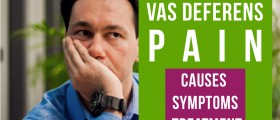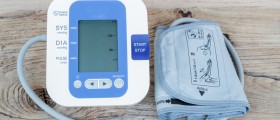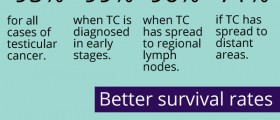Overview
This is not a serious condition but the pain and aching caused by the problem may cause some discomfort. Fortunately, this isn't something experienced by most men and doesn't occur frequently.

Signs and symptoms
Patients with epididymal hypertension may have the following signs and symptoms:
- Discomfort, pain or a feeling of heaviness in the either or both testicles.
- A bluish discolouration of the scrotum may be visible.
Cause
During sexual arousal, the blood vessels that transport oxygen and essential nutrients to the testicles and the penis dilate (expand) to allow a greater amount of blood to flow to the male genitalia. This is the reason why an erection occurs since the increased quantity of blood fills up the spongy tissue of the penis causing it to enlarge and become stiff.
When the individual achieves an orgasm (sexual gratification) the blood is then released to flow back to the body and the erect penis becomes flaccid again.
Epididymal hypertension is more likely to develop in those who are easily sexually stimulated as well as those who perform masturbation techniques that delay an orgasm.
Differential diagnosis
Pain and discomfort in the testicles that only occur when being sexually aroused are most probably caused by epididymal hypertension.
However, if these become regularly experienced complaints then they may be caused by other more serious issues. It's important for individuals who present with these signs and symptoms to consult with a healthcare professional to rule out other possible conditions for the pain in the testicles.
These conditions include:
- Epididymitis - inflammation of the testicles that may be caused by a bacterial infection.
- Wearing tight pants as these can constrict blood flow and compress the nerve supply to the genitals.
- Diabetic neuropathy - a neurological complication of diabetes where glucose molecules damage the lining of the blood vessels, supplying the nerves with oxygen and nutrients, resulting in damage to these vessels and reduced blood supply to the nerves.
- Mumps.
- Kidney stones.
- Orchitis.
- Testicular torsion - this occurs when there's a sudden twisting of the spermatic cord of the affected testicle resulting in decreased blood flow to the tissue and this causes severe pain and swelling.
How is epididymal hypertension managed?
The suggested way of alleviating the symptoms caused by epididymal hypertension is to ejaculate and achieve an orgasm. This way the blood pressure in the genitalia is reduced and the pain will subside.
Other ways to reduce sexual arousal if achieving an orgasm is not possible is to take a cold shower or to distract oneself by performing or keeping busy with other non-sexual activities.
















